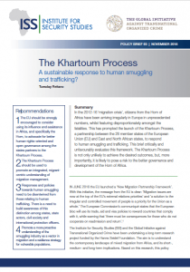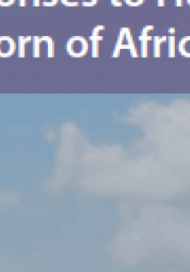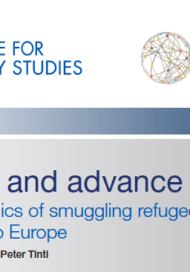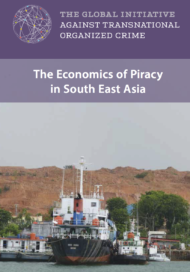Posted on 01 Dec 2016
Jointly with the Institute for Security Studies, the Global Initiative published The Khartoum process (Nov 2016) as part of a research project on human smuggling from Africa to Europe, funded by the Hanns Seidel Foundation (HSF). Our research team sat down with smugglers themselves in Libya, Turkey, in the Sahel and in Sub-Saharan Africa to understand who are the smugglers behind Europe’s migration crisis, to understand how they operate, what drew them into the trade, and how they are responding to international community efforts to end illicit migration.
In the 2012-16 ‘migration crisis’, citizens from the Horn of Africa have been arriving irregularly in Europe in unprecedented numbers, whilst featuring disproportionately amongst the fatalities. This has prompted the launch of the Khartoum Process, a partnership between the 28 member states of the European Union (EU) and East and North African states, to respond to human smuggling and trafficking. This brief critically and unfavourably evaluates this framework. The Khartoum Process is not only unlikely to achieve the desired outcomes, but, more importantly, it is likely to pose a risk to the better governance and development of the Horn of Africa.
About the author
Tuesday Reitano is deputy director of the Global Initiative against Transnational Organized Crime and a senior research consultant for the ISS. She has experience as a policy specialist for the UN. She serves as an independent expert to the EU on human smuggling, is lead author of a 2016 OECD study on the smuggling of migrants from Africa to Europe, and co-author of Migrant, refugee, smuggler, saviour, a book that documents the human-smuggling industry behind Europe’s migration crisis.
Picture: ©IOM/Muse Homammed




